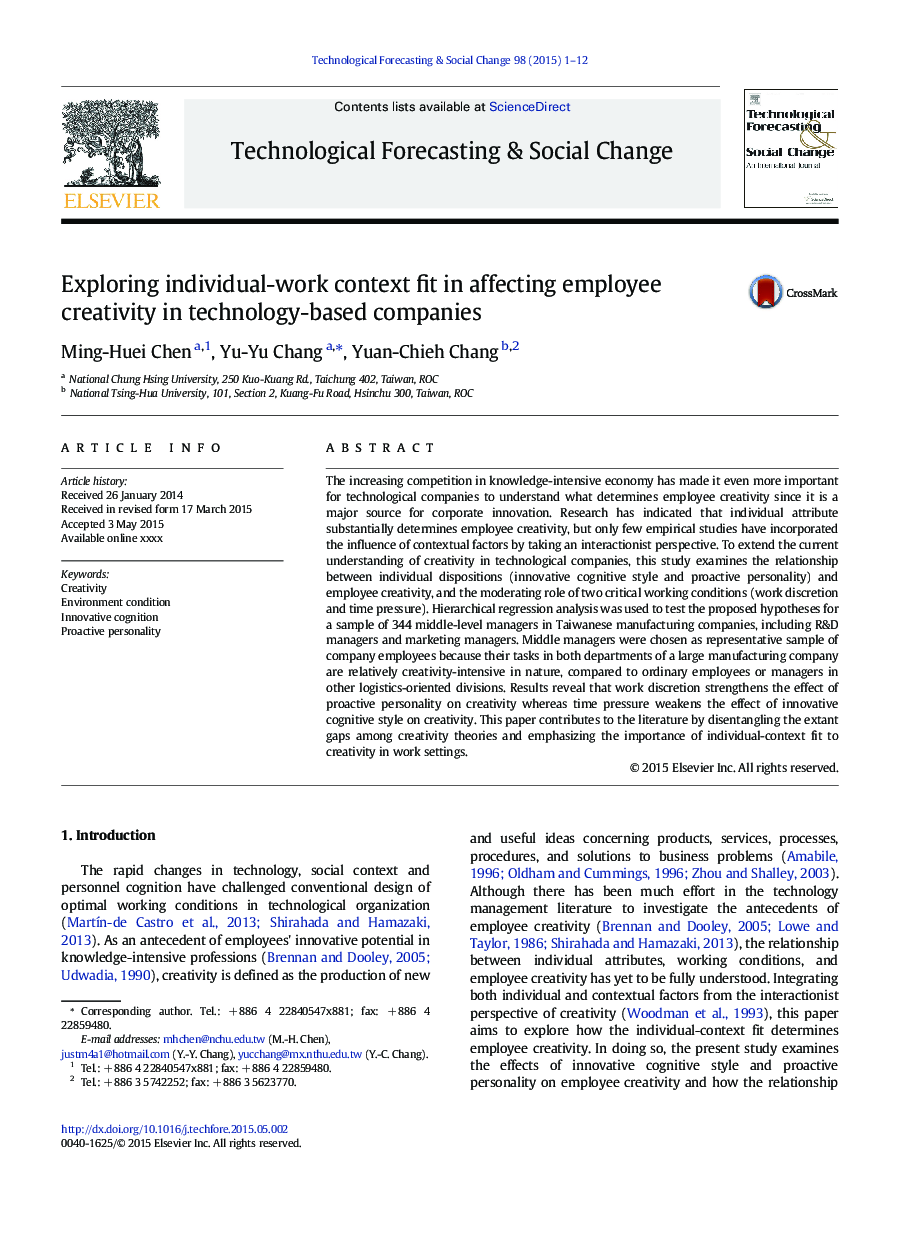| Article ID | Journal | Published Year | Pages | File Type |
|---|---|---|---|---|
| 7256518 | Technological Forecasting and Social Change | 2015 | 12 Pages |
Abstract
The increasing competition in knowledge-intensive economy has made it even more important for technological companies to understand what determines employee creativity since it is a major source for corporate innovation. Research has indicated that individual attribute substantially determines employee creativity, but only few empirical studies have incorporated the influence of contextual factors by taking an interactionist perspective. To extend the current understanding of creativity in technological companies, this study examines the relationship between individual dispositions (innovative cognitive style and proactive personality) and employee creativity, and the moderating role of two critical working conditions (work discretion and time pressure). Hierarchical regression analysis was used to test the proposed hypotheses for a sample of 344 middle-level managers in Taiwanese manufacturing companies, including R&D managers and marketing managers. Middle managers were chosen as representative sample of company employees because their tasks in both departments of a large manufacturing company are relatively creativity-intensive in nature, compared to ordinary employees or managers in other logistics-oriented divisions. Results reveal that work discretion strengthens the effect of proactive personality on creativity whereas time pressure weakens the effect of innovative cognitive style on creativity. This paper contributes to the literature by disentangling the extant gaps among creativity theories and emphasizing the importance of individual-context fit to creativity in work settings.
Keywords
Related Topics
Social Sciences and Humanities
Business, Management and Accounting
Business and International Management
Authors
Ming-Huei Chen, Yu-Yu Chang, Yuan-Chieh Chang,
